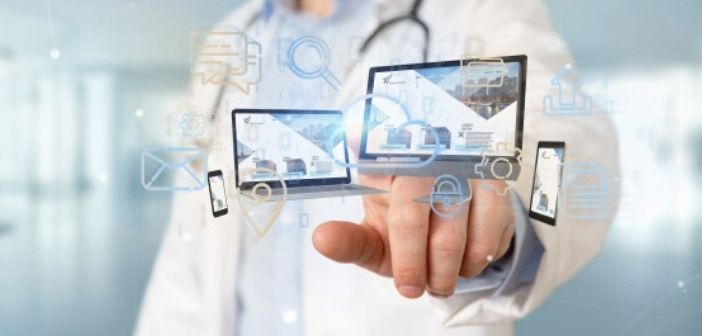“The 2020’s may turn out to be the decade when digital technology reshapes the health system. COVID-19 has certainly driven many developments, as the digital health community continues to navigate how best to bolster classic public health measures.”– World Health Organization (WHO)
The technology disruption has enhanced the efficiency of Healthcare professionals making healthcare more personalized and precise. The use of revolutionary digital tools are allowing medical professionals and patients to work together towards managing health conditions. The convergence of digital technology in healthcare is changing the Healthcare sector beyond recognition.
Digital intervention in Healthcare
While Digital Health is simply the technology intervention in the healthcare sector, this intervention and implication is broad and has been growing rapidly. Digital Health can cover everything including Telehealth, mHealth (mobile health), Wearable devices, and Telemedicine.
Telehealth
Telehealth allows patients to use various medical services like consultation, diagnoses, prescriptions and prescription fulfillment from the comfort of home ,which was previously available only at hospitals and clinics. This has become possible with the use of teleconferencing and ecommerce. Telehealth is a collection of methods to improve patient care and education delivery and includes a wide range of Healthcare domains including non-clinical events like meetings, medical education and physician training.
 mHealth (Mobile Health)
mHealth (Mobile Health)
mHealth is medical and public health practice supported by mobile devices, such as smartphones, patient monitoring devices, personal digital assistants (PDAs), and other wireless devices. mHealth merges the popularity of smartphones with the advantages of Digital Health and makes it possible for us to leverage various medical services like education and awareness, diagnostic treatment and support, disease and epidemic outbreak tracking and others by using smartphones.
Wearable Devices
Another trend in Digital Health is the increasing demand of Wearable Devices. Now, there are smart devices available which can measure heart / pulse rates, blood sugar level and blood pressures, sleep patterns and other key health indicators. These are helping patients to provide data to medical professionals when needed. Major companies have launched their wearables such as Google’s FitBit, Apple Watch and others. There are many smart devices available which are catering to the needs of today’s generation and helping them monitor fitness and stay healthy.
Digital Health: The way forward
To draw a parallel from the Banking industry, 50 years ago you had to be a qualified accountant to work in a bank, and today we see all banking jobs getting filled with people who are well-versed in the latest technologies. Similarly, the Healthcare sector is witnessing a change as digital technologies are getting integrated in all the areas.
Also read: Skill development in Deep Tech sector: AI/ML in Healthcare industry https://nationalskillsnetwork.in/skill-development-in-deep-tech-sector-ai-ml-in-healthcare-industry/
Digital Health is the new normal, digitalization has transformed the major areas of Healthcare – doctor consultation, diagnosis, treatment and drug discovery /research. While usage of technology for health has been around in the Healthcare sector, the unprecedented outbreak of COVID-19 has accelerated the technology adoption. Major disruptive technologies such as AI/ML/Data Science, Robotics and IoT are moving Digital Health to a whole new level and changing the Healthcare industry beyond recognition.
While the changes in the Healthcare industry is here to stay, the question is: Are you ready to embrace the changes?
Author: Purvi Shah | Senior Director | Talent Sprint | For more information please visit: https://iisc.talentsprint.com/digitalhealth/













Comments 1